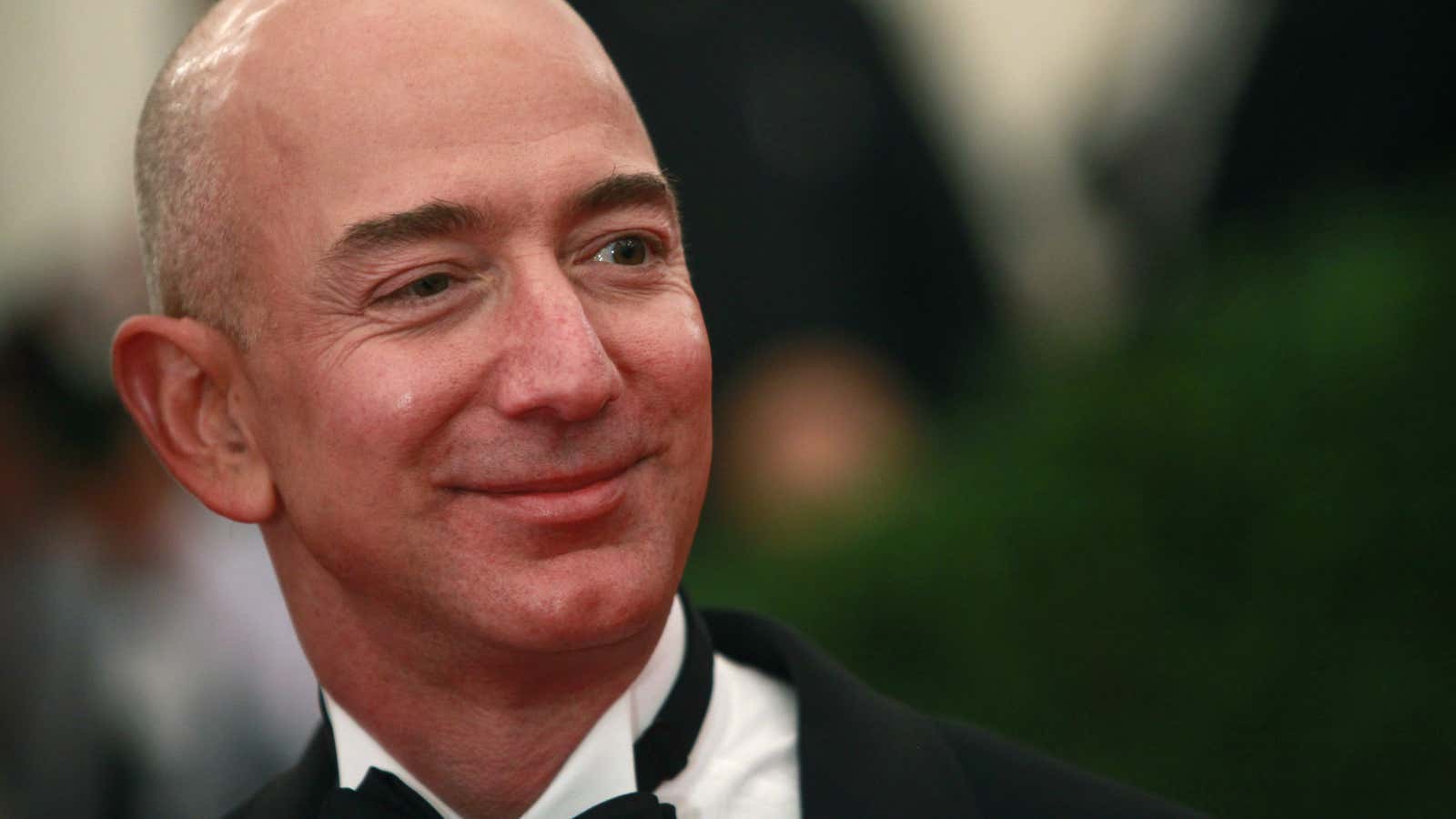Jeff Bezos—the billionaire founder of Amazon with a net worth of over $80 billion—has asked Twitter for advice on how to donate to charity.
The responses came quick. At the time of writing, there were more than 45,000 replies. Bezos must have expected it; his announcement hints at a once-in-a-generation gift of wealth.
Giving away money can be surprisingly hard to do. There is a large philanthropy industry in the world, and that industry is certainly not free from controversy.
There are some eye-watering tales of bad planning, such as the now infamous PlayPump scheme, which sought funds for a scheme providing merry-go-rounds connected to bore holes. Children were supposed to play on the ride and so provide power to pump up water.
Despite tens of millions of dollars in funding for PlayPump, it turned out that “playing” on the wheel was hard and not particularly enjoyable. The charity WaterAid reported that adults were left to turn it by hand, lumbered with an expensive and inefficient type of pump.
But criticism of philanthropy can go far deeper than just highlighting wasteful schemes like PlayPump. At its worst, charity is said to distract us from the root causes of need. That is, lack of access to well-paid work. Or as Oscar Wilde put it: “… remedies do not cure the disease; they merely prolong it.”
With these issues in mind, here is some advice for Bezos.
Read the replies
Having asked for them, Bezos will have to analyze the vast number of replies on Twitter. There is a great range of ideas vying for attention and money. Some are imaginative. For example, one user calls for a fund to help stranded seafarers get back home. Another suggests using drones as first responders in medical emergencies.
Even Madonna, the world famous popstar, joined the debate. She is a graduate of Rochester Adams High School, about 30 miles north of Detroit, and so she invited Bezos on a trip with her to the Motor City, hash-tagging her Twitter reply with charities in the area.
Many of the replies are straightforward reminders of poverty and global hunger. And it is when we think about urgent need that we start to really focus our minds on how to do the most good with the money we have to donate.
In light of this, there is one Twitter responder who is worthy of particular attention. Peter Singer, the well-known moral philosopher, also threw himself into the fray, offering—like Madonna—to personally interact with Bezos. Singer is the founder of the “effective altruism” movement. He contends that we—all of us with a disposable income—have a so-called “duty of easy rescue.”
He famously argues that in circumstances of crisis, we are morally bound to donate—to intervene—in precisely the same way we might be morally obliged to rescue a hypothetical child we discovered drowning in a shallow pond. Because the cost of rescue is so small to anyone with disposable income, and the reward for the recipient can be so enormously high, everyone is constantly morally bound to help out in the most useful way possible. They should give money. And, Singer argues, they should give it to causes where it will have the most impact.
Bezos has a staggeringly large amount of money at his disposal. He can do a lot more than most. He also says on Twitter that he wants to make an immediate difference with his philanthropy, in the “here and now.” Following Singer, a good place to start would be to look at impact in relation to need, and target his money where that impact is greatest. And there are websites such as The Life You can Save and Give Well that make this easy for Bezos (or anyone else looking to give effectively), which outline how effective different charities are, based on different criteria.
Charity starts at home
There is some more difficult advice to give Bezos. It is reasonable to ask him how he has come to be in a position of such enormous power in the first place. After all, he is one of the eight people that Oxfam estimate own the same wealth as the remainder of the world population combined.
That money mostly comes from labour hours. Despite his undoubted entrepreneurial talent, at root he makes a profit from the time of others. That is the nature of commerce: Amazon famously employs large numbers of agency staff and questions have been asked about their treatment. Like all profit-seeking companies, Amazon is concerned with profit margins.
This brings things full circle to Wilde’s comment that charity should not blind us to the root causes of poverty. It is difficult to think of a more intuitive way for Bezos to improve the world than paying his workers well, while also ensuring that everyone in Amazon’s enormous global supply chain can make ends meet.
